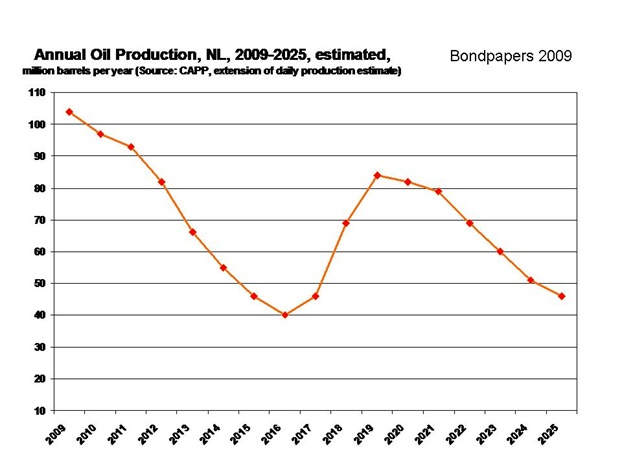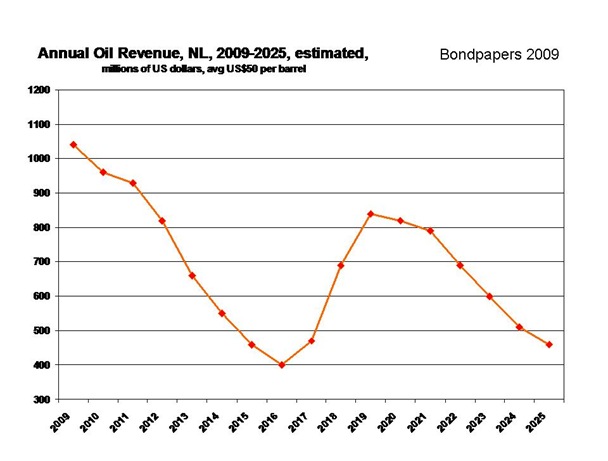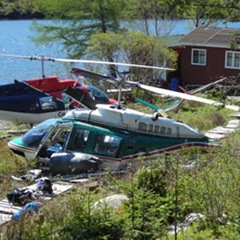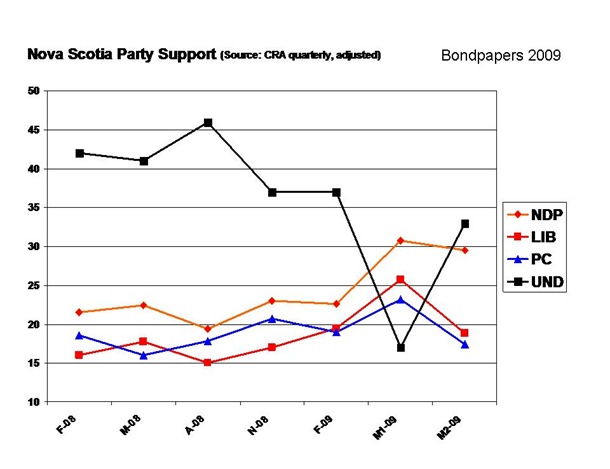Forget all the excuses offered by cabinet ministers before about a whistleblower protection law being complex.
The real reason the provincial government hasn’t introduced whistleblower protection legislation as promised by the Premier is because the Premier is worried about what happens afterward.
Danny Williams told reporters on Friday he wants to make sure the law isn’t used by people who have “a personal vendetta against government.” You’ll find that quote in a Telegram story from the Saturday edition that sadly isn’t on line.
Williams promised whistleblower protection two years ago during the last provincial general election campaign. He apparently promised it swiftly suggesting it would turn up in the first session of the new legislature.
In his report on the House of Assembly spending scandal, Chief Justice Derek Green called for whistleblower protection. Green described such protection as “internal [government] policies designed to encourage internal enforcement of ethical behaviour.”
Green linked disclosure to public confidence in government and cited federal legislation introduced in the wake of the sponsorship scandal. Green also linked whistleblower protection with open records laws as a means of promoting public confidence in ethically sound government.
Two years after Green’s report and Williams’ promise and three years after the House of Assembly scandal first broke, there’s no whistleblower protection laws.
Williams linked whistleblower protection to access to information laws but not in a positive way. Williams told reporters that his senior staff are consumed with vetting access to information requests Williams termed “frivolous”. He said he was concerned that whistleblower protection could “create another situation where we're going to put a stranglehold on government.”
Whistleblower statutes like the one proposed by Bond Papers specifically define the types of incidents covered by the disclosure and provide a mechanism for investigation allegations by an independent third party.
Under the Bond Papers bill, based on the 2006 Manitoba public interest disclosure law, the legislation would apply “to the following wrongdoings in or relating to the public service:”
(a) an act or omission constituting an offence under an Act of the Legislature or the Parliament of Canada, or a regulation made under an Act;
(b) an act or omission that creates a substantial and specific danger to the life, health or safety of persons, or to the environment, other than a danger that is inherent in the performance of the duties or functions of an employee;
(c) gross mismanagement, including of public funds or a public asset;
(d) knowingly directing or counselling a person to commit a wrongdoing described in clauses (a) to (c)…
There is no room for a personal vendetta. The acts subject to disclosure are all in the public interest and it’s hard to see how anyone could consider disclosure of such lawbreaking as part of a personal attack by the whistleblower. of course, attacking the motives of the whistleblower is part of the climate frequently used to discourage disclosure in the first place.
The draft law allows for disclosure of wrongdoing to an official designated in each department or to the Citizen’s Representative. Green used the Manitoba legislation in drafting his report.
Green noted the potential that whistle blowing laws could lead to some risk for politicians. However, Green said that a thorough and independent investigative process “should, however, screen out unfounded allegations of a vindictive nature.”
Green also said the public value of restoring confidence in government outweighed such issues:
I do not believe that a concern of this nature is sufficiently strong to overbalance the other benefits of implementing such a policy, particularly the removal of public suspicion that MHAs have something to hide and the bolstering of public confidence in the open and transparent nature of the political system.
Williams disdain for public access to government information isn’t new.
Early in his administration, Williams tried to withhold polling results even though provincial open records law specifically listed them as being subject to disclosure.
More recently, government officials successfully stymied a request for e-mails by essentially inventing excuses based on how much information was covered by the request and how much time it would take to process the request.
In another example, requests for specific documents were denied on the grounds that the documents didn’t exist even though government officials acknowledged the records actually did exist.
In that case, Williams went so far as to call personally the reporter making the request to complain about the fact the request had been appealed to the province’s information and privacy commission.
In January 2009, a survey by the Canadian Newspaper Association showed that the provincial government didn’t fully respond to any of six specific information requests used in the study. A request for information in electronic format (Excel or a similar spreadsheet program), netted a bizarre but increasingly typical response:
The letter from the Transportation and Public Works department in Newfoundland stated that the information “does not exist in electronic form within this department,” even though the record released was a computer printout.
The provincial government is also sitting on information related to a review of inland fisheries policy that has been ongoing for an unknown period.
Even requests for information not handled through access to information laws have run into stone walls.
The natural resources department refused to answer questions about compensation talks with Abitibi over expropriated assets because there were compensation stalks with Abitibi over expropriated assets.
The same department also refused to give any details of the minister’s trip to Ottawa last winter.
As for the claim about how much time is consumed vetting requests, testimony last year at the Cameron inquiry into the breast cancer testing scandal revealed that some of the reasons staff spend so much time on access requests involves vetting public information.
In one notorious example, the name of a judge presiding over a case which had been reported in the news media was redacted for an access request. The same approach came to light in a report on the provincial prisons service only because government officials mistakenly released a copy of the document electronically with faulty redactions. None of the information blacked out actually met the disclosure exemptions under the provincial access law, but they were blacked out any way.
If there is a “stranglehold” on government, it seems to be coming from intense and persistent efforts to avoid public disclosure of government information under provincial laws. Adding whistleblower legislation wouldn’t add to that and the provincial government itself can avoid getting strangled by reducing its self-imposed efforts at secrecy.
Perhaps they should take a cue from Chief Justice Green. After all, he did say that implementing open records laws and protecting whistleblowers would bring benefits, “particularly the removal of public suspicion that MHAs have something to hide.”
All the foot-dragging and such does make one wonder.
-srbp-
Update: The online CBC version of the story with a link to a David Cochrane report. This is by no means as complete as the Telly story and the interpretation is more than a bit generous to the Premier. His juicy quotes about access to information, for example, are clipped in favour of his throw-away line about how important ATIPPA is.





